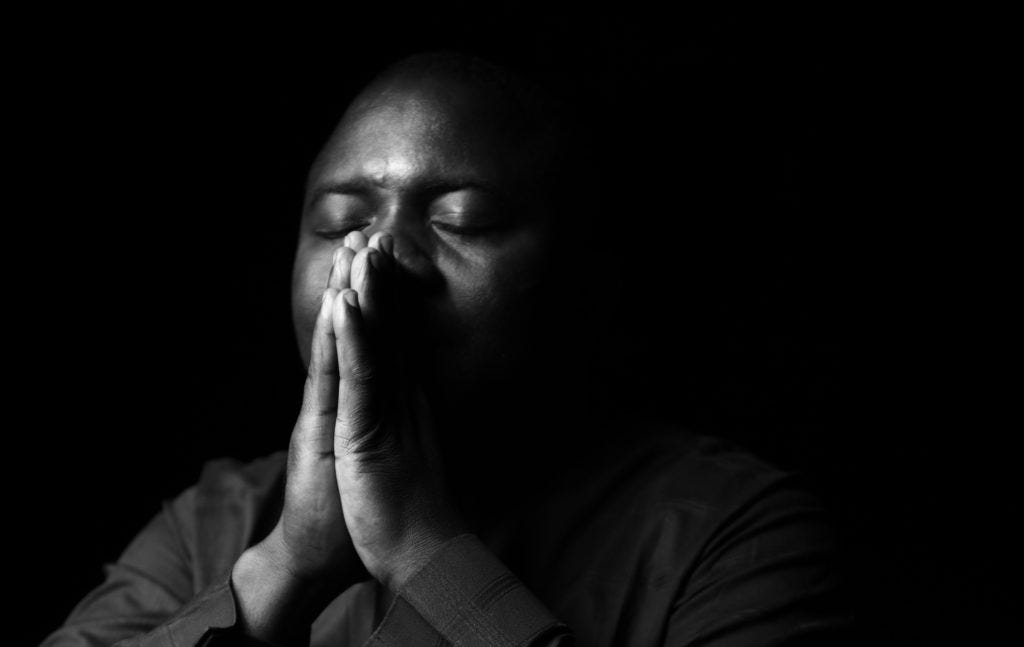Gospel In Life — Quarterly
by Dr. Tim Keller
Fall 2020
Timothy J. Keller (born September 23, 1950) is an American pastor, theologian, and Christian apologist. He is the chairman and co-founder of Redeemer City to City, which trains pastors for service around the world.
Introductory note:
In a previous article I argued that all the secular political options and justice theories, from “right” to “left”-Libertarianism, Liberalism, Utilitarianism, Progressivism-are grounded in reductionistic worldviews. [1]
Christians should not ignore any of the rightful concerns that they raise, but also should not wholly align themselves with any of them.
Only biblical justice is comprehensive enough to address the needs of the human condition.
In this article, I lay out in greater detail what biblical justice is.
(Note: My essay assumes
- the abiding relevance of the Old Testament, [2]
- the antithesis between Christian and all non-Christian worldviews, [3] and yet
- the doctrine of common grace. [4]
For readers who disagree or who want to explore these topics at greater length, see the footnotes in the previous sentence.)
Outline of the publication
- 1. The God of Justice
- 2. The Facets of Justice
- 3. Working for Justice
These basic themes work themselves out in four facets of biblical justice. Biblical justice is characterized by: radical generosity, universal equality, life-changing advocacy, and asymmetrical responsibility.
- 1.GENEROSITY
- 2.EQUALITY
- 3.ADVOCACY
- 4.RESPONSIBILITY

1.GENEROSITY
The first facet of biblical justice is radical generosity. While secular individualism says that your money belongs to you, and socialism says your money belongs to the State, the Bible says that all your money belongs to God, who then entrusts it to you (1 Chronicles 29:14; 1 Corinthians 4:7). In Luke 16:1–16, Jesus calls us to be wise stewards of our wealth. A steward was the manager of an estate under its owner, making him both a master and yet a servant. So our wealth belongs to us and yet does not belong to us.
One place we see these two dimensions is in the Mosaic law itself. Theft is always an injustice, for to take someone’s money or goods is to trample on their property rights. And yet many laws show us that these property rights are not absolute. The Sabbath year law required that every seventh year all debts were cancelled (Deuteronomy 15:7–10). An even more radical law was the law of the “Jubilee” year. Every 50 years, the land went back to its original allotments (Leviticus 25:8–55). On average, each person or family would have a once-in-a-lifetime chance to start over, no matter how deeply into debt they had fallen.
Then there were the laws of gleaning. Landowners were not to harvest out to the edges of their field, maximizing profits for themselves, and then later out of their great wealth, help the poor only through philanthropy. Rather, landowners had to leave some of the produce in the field so that both their hired workers and the poor could come “glean” and get food through their own labor (Leviticus 19:9–10; 23:22) Deuteronomy 24:19 says the gleanings “shall be for the immigrant, the fatherless, and the widow.” The Hebrew term rendered “be for” means ownership. [9] God says that some of the profit from your business does not belong to you, but to those with less. And just when the reader may think this sounds like socialism, Deuteronomy 23:24–25 comes in and protects the farmer from those who might try to take advantage and glean excessively. The Mosaic Law does not demand abstract equalizing of wealth or all elimination of social class. This giving was neither optional charity nor State redistribution.
Theologians like Calvin have taught that the basic theological ideas about wealth and justice reflected in the Mosaic laws are abiding. [10] Biblical scholar Craig Blomberg says that the view of wealth behind these laws does not fit into any contemporary or ancient economic models. The Jubilee and sabbath law does not honor the “rights of capital” in the way they are viewed in capitalistic societies. On the other hand, as we have seen, there’s not a hint of state ownership or abstract equalizing. The Bible, Blomberg writes, “suggests a sharp critique of 1) statism that disregards the precious treasure of personal rootage, and 2) the untrammeled individualism which secures individuals at the expense of community.” [11] Rather, out of love of God and love of neighbor, “The righteous (saddiq) are willing to disadvantage themselves to advantage the community; the wicked are willing to disadvantage the community to advantage themselves.” [12]
As a result, we can say that to be radically generous is not only a matter of mercy, but of justice.
As a result, we can say that to be radically generous is not only a matter of mercy, but of justice. [13] Ezekiel 18:5 “opens with a general statement that the [righteous], the ṣaddîq, practices justice, followed by a list of eleven concrete ways in which humans exercise these qualities.” To fail to do any item in the list is to be unjust, and the list includes “he gives his food to the hungry, and provides clothing for the naked” (verse 7). [14] So to be ungenerous is to be unjust. Job 29 and 31, [15] Isaiah 1 and 58 make the same point. [16]
In Luke 12:16–21, Jesus tells the parable of the rich fool who stored his wealth up for his own use when he should have been “rich toward God.” Then Jesus makes clear that to be “rich toward God” means “Do not be afraid, little flock, for your Father has been pleased to give you the kingdom. Sell your possessions and give to the poor” (Luke 12:32–33). Commentators point out that the term “sell your possessions” does not mean all your possessions but neither does it mean giving without any sacrifice. [17]
Both socialism and libertarianism keep the obligation to share with the needy on the “horizontal” level.
On the Left, money is the State’s and the distribution to the needy will be involuntary.
On the Right, money is yours alone and any giving is voluntary and optional.
The biblical teaching makes the primary dimension the “vertical” — the relationship to God.
Your money is your own and no one must confiscate it from you.
Yet you have moral obligations to both God and your neighbor to use your money unselfishly and with great generosity to love others with it, according to both your ability and to their needs. [18]
Both socialism and libertarianism keep the obligation to share with the needy on the “horizontal” level.
The biblical teaching makes the primary dimension the “vertical” — the relationship to God.

2.EQUALITY
A second facet of biblical justice is universal equality. Biblical justice requires that every person be treated according to the same standards and with the same respect, regardless of class, race, ethnicity, nationality, gender, or of any other social category. Leviticus 19:15 says: “You shall not be partial to the poor or defer to the great, but in righteousness (sedeqah) shall you judge your neighbor.” Deuteronomy 16:19 says: “You shall not show partiality, and you shall not accept a bribe, for a bribe blinds the eyes of the wise and subverts the cause of the righteous (sedeqah).” [19]
This biblical idea was unique and revolutionary in world history. Surrounding cultures and societies knew nothing of it–see the famous Code of Hammurabi. [20] The idea that every human had equal dignity and worth was equally foreign to the Greeks and Romans. Aristotle famously said that some races and nationalities deserved to be slaves. Tom Holland writes that ancient cultures, apart from Israel, completely lacked “any sense that the poor or the weak might have the slightest intrinsic value.” [21] What the Greeks, Romans, and other ancient cultures lacked was the book of Genesis, which teaches that all human beings were “equally… created in the image of God” (Genesis 1:27). [22] The Bible assumes it everywhere: “Whoever oppresses the poor shows contempt for their Maker, but whoever is kind to the needy honors God” (Proverbs 14:31). “Rich and poor have this in common: The Lord is the Maker of them all” (Proverbs 22:2). [23]
Jesus shocked the social sensibilities of the day by receiving and treating all classes of people with equal love and respect. Samaritans were seen by the Jews as racial inferiors, yet twice Jesus places Samaritans on the same spiritual level as the Jews (Luke 9:54; 17:16). Jesus touched off a riot when he declared that God loved Gentiles, such as the widow of Zarephath and Naaman the Syrian (Luke 4:25–27), as much as Jews. Jesus reached out to lepers who were social outcasts, touching them and defying the contemporary social prohibitions (Luke 5:12–16; 17:11–19).
He exhorted his disciples to not only be generous to the poor (Luke 11:41; 12:33; 19:8) but to welcome them into their homes and families (Luke 14:13). Hospitality in that time was an act of friendship and partnership and it was shocking to treat the poor as equals in such a way. Through the parable of the Good Samaritan (Luke 10:25–37), Jesus defined “loving my neighbor” as giving practical, financial, and medical aid to someone of a different religion and race. Both doing justice and loving one’s neighbor means treating people of all races and religions and social classes as equal in dignity and worth. [24]
The rest of the New Testament follows Jesus’ rule: “[B]elievers in our glorious Lord Jesus Christ must not show favoritism…. If you show special attention to the man wearing fine clothes and say, ‘Here’s a good seat for you,’ but say to the poor man, ‘You stand there’ or ‘Sit on the floor by my feet,’ have you not discriminated among yourselves and become judges with evil thoughts? …[Y]ou have dishonored the poor” (James 2:1–4, 6).
One of the most eloquent biblical appeals to treat all people as absolute equals — in both action and attitude — is found in John Calvin’s Institutes of the Christian Religion. Calvin admits that “the great part of [the human race] are most unworthy if they be judged by their own merit.” Nevertheless he says: “But here Scripture helps in the best way when it teaches that we are not to consider what men merit of themselves but to look upon the image of God in all men, to which we owe all honor and love.” [25] He concludes: “Therefore, whatever man you meet who needs your aid, you have no reason to refuse to help him… [W]e remember not to consider men’s evil intention but to look upon the image of God in them, which cancels and effaces their transgressions, and with its beauty and dignity allures us to love and embrace them”…. [Christians] must put themselves in the place of him whom they see in need of their assistance, and pity his ill fortune as if they themselves experienced and bore it, so that they may be impelled by a feeling of mercy and humaneness to go to his aid just as to their own.” [26]

3.ADVOCACY
A third facet of biblical justice is significant, life-changing advocacy for the poor. Psalm 41:1 says, “Blessed is the one who gives active consideration to the weak and the poor.” [27] The word translated “consideration” means believers are to pay close attention to the weak and the poor, seeking to understand the causes of their condition, and to spend significant time and energy to changing their life situation. [28] “The righteous care about justice for the poor, but the wicked have no such concern” (Proverbs 29:7).
While we are to treat all equally, and not show partiality to any (Leviticus 19:15), we are to have special concern for the poor, the weak, and the powerless. Proverbs 31:8–9 says “Speak up for those who cannot speak for themselves… Defend the rights (sadeqah) of the poor and needy.” Is this a contradiction? No. The Bible doesn’t say “Speak up for the rich and powerful.” It does not mean that the powerful are less important as persons before God. They certainly are equally as important. But they don’t need you to speak up for them. However, the poor do need you.
The call to advocacy assumes that the poor and the immigrant have equal rights. Deuteronomy 24:17, 19 says: “Do not deprive the foreigner or the fatherless of justice, or take the cloak of the widow as a pledge…. When you are harvesting in your field and you overlook a sheaf, do not go back to get it. Leave it for the foreigner, the fatherless and the widow, so that the Lord your God may bless you in all the work of your hands…” Christopher Wright explains: “The phrase is literally ‘do not turn aside the mispat of the alien, the fatherless, and the widow’…mispat…includes a person’s rights in general…The rules that follow are thus a matter of rights, not charity. In God’s sight a widow has a right not to be robbed of essential clothing to get a loan. And the gleaning provisions of verses 19–21 are rights, not hand-outs.” [29]
The call to advocacy assumes that a fact of our fallen world is a highly uneven distribution of opportunity and resources. “The poor are shunned even by their neighbors, but the rich have many friends” (Proverbs 14:20; 19:4). To be born into a privileged family is to automatically have “friends” — connections to people with power, immense social capital that paves the way in life. But the poor do not have such capital. Children in poor neighborhoods usually grow up with inferior schooling and in an environment extremely detrimental to learning. Conservatives may argue that this is the parents’ fault while progressives will point to a failure of social policy. But no one believes that it is the children’s fault. They are born into a world without “friends” who can open doors for them.
The call to advocacy also assumes the reality of “oppression.” The main Hebrew word for the poor is the word a’ni — a word derived from an’not, that means to be brought to a lowly status by force. There are innumerable ways that the wealthy and the powerful can turn things to their advantage — in courts, in the marketplace, in the community — at the expense of others. “Do not exploit the poor because they are poor and do not crush the needy in court” (Proverbs 22:22–23). Across the cultures and the centuries it has been seen that the less well off are more likely to be convicted and receive greater penalties for the same crimes those with greater resources commit. Proverbs 11:26 complains about sellers hoarding grain to drive up the prices to gouge the poor, and Deuteronomy 24:14–15 speaks of “taking advantage” (literally robbing) short-term laborers by failing to pay them daily. [30] Jeremiah 22:3 says, “Protect the person who is being cheated from the one who is mistreating… foreigners, orphans, or widows…” Jeremiah is singling out groups of people who can’t protect themselves from mistreatment the way others can. Zechariah 7:10: “Do not oppress the widow or the fatherless, the foreigner or the poor.”
Each of the Ten Commandments reveals a prohibition, but also implies a positive opposite duty. So the Westminster Larger Catechism teaches that to obey the sixth commandment, “You shall not kill” includes the duty of not “neglecting or withdrawing the lawful and necessary means of preservation of life” (WLC Q.136). That means not merely that we are not to deliberately kill anyone, but also that we are not to allow conditions that undermine the safety and bodily well-being of any of our neighbors. [31] It means not ignoring neighborhoods with terrible healthcare, or dangerous environmental factors, or inadequate nutrition and housing that ruin the physical well-being of residents.
The supreme advocate for the poor is God himself. He takes up the “cause” of the needy and calls his people to do the same. “Do not crush the needy in court, for the Lord will take up their case” (Proverbs 22:23; cf. Deuteronomy 10:18–19). Jesus says: “will not God bring about justice for his chosen ones, who cry out to him day and night? …I tell you he will see that they get justice, and quickly” (Luke 18:7–8). Jesus himself takes the role of advocate and calls out the Pharisees for being “lovers of money” (Luke 16:14) and the scribes for “devouring widow’s houses” (Luke 20:47), taking advantage of their precarious financial and legal situation. [32]
So how do we do advocacy? There are at least three ways to do this, according to the Bible. There is direct relief to meet material needs (Luke 10:30–35). Here the advocacy is focused on getting a person or family the legal, medical, financial and other resources they need to face a crisis. Then there is empowerment: helping a person, family, or community gain self-sufficiency (Deuteronomy 15:13–14). This invests in ways that help the person or family or group come to the place where they have the resources and forms of capital — social, financial, cultural, personal — so that they are no longer in the position of constantly needing advocacy and help from outside.
Finally advocacy can take on the social structures that disadvantage certain groups. Job tells us that he not only clothed the naked, but he “broke the fangs of the wicked and made them drop their victims” (Job 29:17). This can take a number of forms. The church may forbid its members from participating in those unjust social structures, thereby undermining them. Paul forbade Christians taking part in “manstealing” — slave trading based on kidnapping, something that was common in Roman society (1 Timothy 1:8–11). [33]
In Luke 14, Jesus commanded his followers to completely abandon the patronage system, which was a major source of social inequality (see below). Esau McCaulley, Tom Holland and others have shown how the early church’s teaching on love and universal human dignity was the basis for the eventual dismantling of slavery. [34] Sometimes taking on social structures means speaking publicly against rulers and leaders who are doing wrong. In Daniel 4:27, Daniel calls a pagan king to renounce his sins “by being kind to the oppressed.” McCaulley shows that when Jesus’ ministry brings him into conflict with the ruling power, namely Herod, he challenged him and called him “that fox” (Luke 13:32–33), a public rebuke of a political leader by a religious one.

4.RESPONSIBILITY
A fourth facet of biblical justice is responsibility — both corporate and individual. One of the most basic definitions of justice is “giving people what they are due.” But are we responsible only for our own sins, or are we also complicit, responsible, and involved in the sins of others as well?
Corporate responsibility:
In Joshua 7, Achan sins by stealing some of the plunder of Jericho and hiding it. The text assumes that Achan’s family was executed along with him (verses 15, 25). [35] Further, the text says God held the entire nation responsible for this act. Because of it, some Israelites died in the first assault on Ai as a punishment for the sin of an individual that they did not even know about (verse 5, 11–12). In Numbers 16 the families of Korah, Dathan, and Abiram died with them for those men’s sins. [36] In 2 Samuel 21, God sent three years of famine on Israel and refused to grant prayers on behalf of the land (verse 14). When David inquired why, God told him that he held Israel corporately responsible for what King Saul had done to the Gibeonites even though Saul was dead and gone. [37]
It is common to respond to these accounts by arguing that God had a unique relationship to Israel as his covenant people and therefore he dealt with them as a corporate body, while those outside he held responsible only as individuals. But God also held pagan nations accountable for sins of their forebears. God punished the Amalekites in 1 Samuel 15:2 for what they did when Israel came out of Egypt, even though that had happened centuries before. In Deuteronomy 23:3–8, God excluded members of some nations (Ammon, Moab) from being admitted to his presence, while not excluding others (Egypt) — and does so on the basis of how their ancestors acted generations earlier. Similarly, in Amos 1–2, God held pagan nations accountable for sins of the past, including war atrocities and enslavement of whole peoples.
But are we responsible only for our own sins, or are we also complicit, responsible, and involved in the sins of others as well?
New Testament leaders recognized corporate responsibility for Jesus’ death after the resurrection of Christ. In Acts 2, Peter holds those who were in Jerusalem at the time responsible (Acts 2: 22–23, 36; Acts 10:39) though all of those people did not actually hand Jesus over to die. Yet when addressing the Jews in Pisidian Antioch, Paul says that it was those who lived in Jerusalem and their rulers who crucified Jesus (Acts 13:27). He does not blame all Jews everywhere for Christ’s death. [38] In addition, both Ezra (Ezra 9) and Daniel (Daniel 9) confess sins of their people that they were not personally guilty of themselves. [39]
So the Bible teaches that corporate responsibility is a greater reality than individualistic modern western people want to believe. On the other hand, there are real limits to it as well — it cannot be applied indiscriminately.
Corporate bonds:
Corporate responsibility is at the very heart of the Bible and the gospel. We can only be saved because Jesus was punished for our sins, sins he did not commit (Romans 5:12ff; 1 Corinthians 15:21–23; 2 Corinthians 5:21). But how is that possible? It is because faith and the Spirit of God create a union between us and Jesus. Corporate responsibility depends on the kinds of bonds and unions that human beings have in community. They include:
1.Familial.
We are more the product of our families than we want to admit. Parents see their character flaws reproduced in their children and some responsibility for their children’s sins is rightfully felt. When individuals sin, they do so in some measure because their families have allowed them to become the kind of persons who sin in that way. So families bear some responsibility, through sins of omission or commission, for the wrongdoings of individual members.
2. Political and Civil.
In a political community, the people are somewhat responsible for the sins of the leaders and vice versa. Israel asked for a king (1 Samuel 8–10) and even though they did not “elect” Saul, neither did they resist or rebel against him when he fell into evil. So they bore some responsibility for his sin. Likewise, leaders understand that they bear some responsibility for the sins that people do “on their watch.”
3. Communal.
Those who were present in Jerusalem were held responsible for Jesus’ death but the Jews as an entire race were not blamed for it (Acts 13:27). The implication is that the people present at the time could have done things together to block or stop the crucifixion. While they were not formally co-citizens of a body politic, they had relationships and power that they could have exercised. If we are in close relationships with people and do nothing about their sin, we bear some responsibility as well (cf. Ezekiel 33; Galatians 6:1–2).
4. Institutional.
Institutionalized ways of doing things range from how we check out at a grocery store to how we apply and get admitted to a college. Individuals may perform only one or two actions within such social systems, but by doing so they support the whole system. If the system privileges the powerful and disadvantages the weak, individuals within the institution are responsible for the unjust effects even if they cannot see (or do not want to see) them.
At a banquet, Jesus “noticed how the guests picked the places of honor at the table” (Luke 14:7). The purpose of dinner engagements was to cultivate relationships with people who could open doors for you and who in turn would expect favors from you and access to your network of contacts and assets. [40] Because of this highly institutionalized social system, people of means would never invite the poor to a meal, because their presence would endanger the social status of the host and the others at the meal would feel their time wasted. But this systemically disadvantaged those at the lower end of the social order. [41]
Jesus refuses to let his followers participate in this system at all. He says when they have a dinner, “do not invite your friends, your brothers or sisters, your relatives, or your rich neighbors; if you do, they may invite you back and so you will be repaid. But when you give a banquet, invite the poor, the crippled, the lame, the blind, and you will be blessed” (Luke 14:12–14). For believers who were not poor, the regular invitation to the needy and the weak into their homes would negate social structures that created “exclusionary social boundaries,” and the new system would trigger “a form of unpremeditated generosity…on behalf of the poor…. It is difficult to exaggerate the repercussions of such practices.” [42]

The personal becomes structural injustice:
The sinful human heart rejects God as Lord and Savior and seeks to justify itself (Romans 1:21–25; 9:32), and one of the ways we justify ourselves is by “looking down” on those who are different (Luke 18:9–14). One of the main ways humans do this is through differences of race and culture. We take mere cultural differences and preferences that–biblically speaking, are neither good or bad–and we view them as virtues. We see cultures who lack those things as inferior. This is how we bolster our sense of self-worth. The result is “hostility” between those who are racially and ethnically different (Ephesians 2:14). This is such a natural and deeply entrenched strategy of the human heart that even Peter the apostle fell into it (Galatians 2:11–14) despite all the revelations of Acts 10–11. Now if generations of racial-cultural pride and self-righteousness is deeply entrenched in the hearts of individuals, and if we are social creatures who naturally form institutions, then we should expect to see structural, not just individual racism. By that I mean, to quote John Piper:
“…the cumulative effect of racist feelings, beliefs, and practices that become embodied and expressed in the policies, rules, regulations, procedures, expectations, norms, assumptions, guidelines, plans, strategies, objectives, practices, values, standards, narratives, histories, records, and the like, which accordingly disadvantage the devalued race and privilege the valued race.” [43]
Individual responsibility:
So we find ourselves in a place where we should express repentance for sins done by people with whom we are connected, past and present. But how do we explain two key Old Testament texts that teach, quite categorically, individuals should only be punished for their own sins?
The first is Ezekiel 18:1–32: “The one who sins is the one who will die. The child will not share the guilt of the parent, nor will the parent share the guilt of the child” (verse 20). The second is Deuteronomy 24:16: ”Parents are not to be put to death for their children, nor children put to death for their parents; each will die for their own sin.” As we have seen, some kinds of corporate responsibility exist. So how do corporate and individual responsibility relate to each other?
The answer is that there is an asymmetrical relationship between them, with the individual responsibility being the strongest. For example, leaders should feel responsibility for wrongs done by others under their authority that they themselves did not do. And yet, individuals actually committing those wrongs always bear the greatest responsibility.
Old Testament scholar Walter Kaiser sums this up well. First, Ezekiel 18 makes clear that one’s spiritual and eternal destiny is based solely on their individual repentance and actions. God does not make final judgment on anyone for their parents’ or nation’s sins — only for their own. Second, Deuteronomy 24:16 is talking about standard human jurisprudence. Deuteronomy is telling judges in Israel that they may never legally punish anyone for their parent’s or their children’s sins. [44] The reality of corporate sin does not “swallow up” individual moral responsibility, nor does individual responsibility disprove the reality of corporate evil and responsibility. There is corporate responsibility, but in the end we are held responsible for the sins we personally commit.
Responsibility and complexity:
Secular worldviews tend to be reductionistic — they look for a single cause that explains all the problems of life. So progressives today stress the reality of corporate responsibility virtually to the exclusion of the individual, while many conservatives and Libertarians deny any corporate responsibility at all. The Left believes unequal outcomes are virtually always due to injustice, while the Right believes unequal outcomes are virtually always due to personal irresponsibility.
But to take either position is to adopt some secular view of justice rather than a biblical one. The biblical text shows that both my sins and my outcomes in life (whether I am well-off or poor) are due to complex factors, both individual and corporate and environmental. Poverty can be due to individual failure and wrong doing (Proverbs 6:6–7; 23:21), or to social injustice and social structures (Proverbs 13:23, 18:23; Exodus 22:21–27), or to environmental factors such as floods, disabling injuries or illnesses. It is because of this complexity that the rendering of justice — both the distribution of rights and punishments — requires the greatest wisdom, deliberation and prudence.

About the author:
Timothy J. Keller (born September 23, 1950) is an American pastor, theologian, and Christian apologist. He is the chairman and co-founder of Redeemer City to City, which trains pastors for service around the world.
Dr. Keller was born and raised in Pennsylvania, and educated at Bucknell University, Gordon-Conwell Theological Seminary, and Westminster Theological Seminary. He previously served as the pastor of West Hopewell Presbyterian Church in Hopewell, Virginia, Associate Professor of Practical Theology at Westminster Theological Seminary, and Director of Mercy Ministries for the Presbyterian Church in America.
Note from the Editor of the Portal:
This is a republication of the article above, considering it´s biblical foundation, for discussion. The Editor of the Portal does not necessarily agree with all the points made here.












